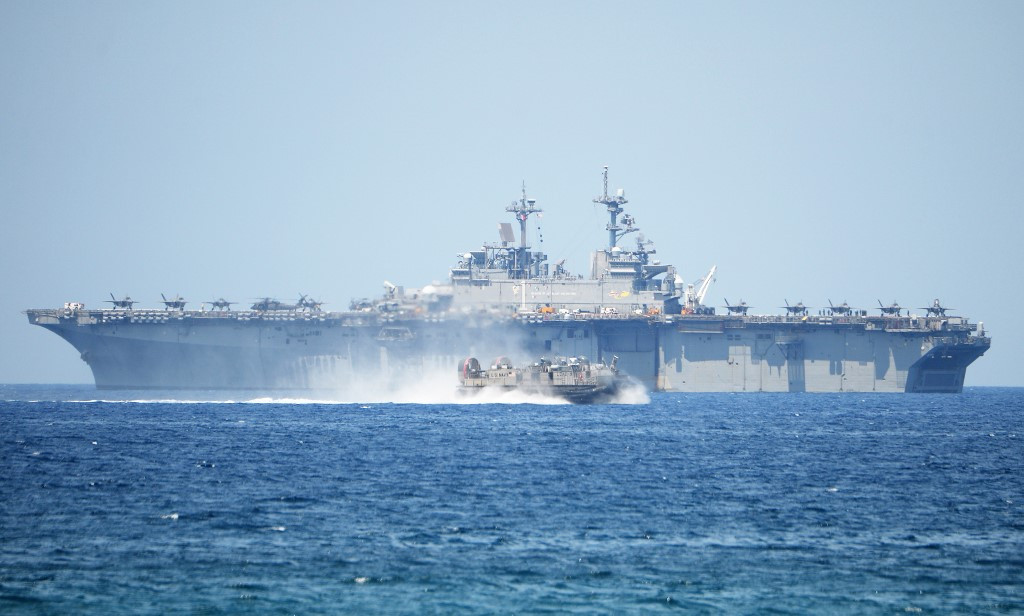Popular Reads
Top Results
Can't find what you're looking for?
View all search resultsPopular Reads
Top Results
Can't find what you're looking for?
View all search resultsEveryone loses
If war or conflict prevails in one of the world’s busiest maritime trade corridors, then swaths of economic activity get thrown out the window.
Change text size
Gift Premium Articles
to Anyone
T
he South China Sea dispute is heating up, and it is happening at the worst possible time. Tensions have risen between the United States and China in recent weeks, marked by Washington’s announcement earlier this month that it had toughened its stance on the South China Sea issue.
US Secretary of State Mike Pompeo led the rebuke by declaring that America stood with its Southeast Asian allies in protecting their “rights to offshore resources”. Beijing responded strongly, accusing Washington of “inciting confrontation in the region” and sabotaging its efforts to engage peacefully with ASEAN.
On either side of this confrontation, the superpowers traded barbs, deployed military assets and conducted maneuvers in contested waters.
The US-China rivalry has already spilled over into global efforts to curb COVID-19, as questions have been raised about the World Health Organization’s authority and susceptibility to national influence.
Some observers will frame the US policy shift in the South China Sea as a politically motivated step to bolster President Donald Trump’s claims to be tough on China. Others see it as a welcome return to a region that was left wanting for an answer to Beijing’s coercive negotiation tactics.
None of these analyses account for the grim reality faced by all ASEAN countries: the struggle to revive an economy arrested by the onset of a dangerous health crisis. As a result, even non-claimants in the dispute have been pulled into the mess.
Indonesia began a major, five-day naval exercise on Wednesday that featured warfare simulation on a beach on Singkep, an island in the Riau Islands province at the edge of the South China Sea. Experts see it as a show of determination to assert sovereignty over the country’s territory.
On Thursday, Foreign Minister Retno Marsudi underlined the importance of promoting peace at a time when almost every nation in the world was preoccupied with the pandemic. She said we should never forget the importance of promoting peace as a prerequisite for success in curbing COVID-19 and speeding up economic recovery.
Indonesia has thrown itself into various efforts to limit the impact of the pandemic, including joining international consortiums on vaccine research and deliberating the establishment of travel corridors with ASEAN and other partner countries.
All of these endeavors – especially the travel corridor discussions, which seek to facilitate cooperation on economic recovery – have benefited from continued peace.
Now, imagine if COVID-19 hit us during a time of war. Resources would have been even scarcer, nations more untrusting of one another and the pains of mitigating a pandemic even less bearable. While the South China Sea dispute does not necessarily put the region at the precipice of war, entanglement between superpowers in ASEAN’s own backyard is a cause for concern.
Malaysia has called for restraint from military posturing in contested waters, which top diplomat Hishammuddin Hussein said could “end up in war”. He has a point.
If war or conflict prevails in one of the world’s busiest maritime trade corridors, then swaths of economic activity get thrown out the window. And everyone loses when that happens.










